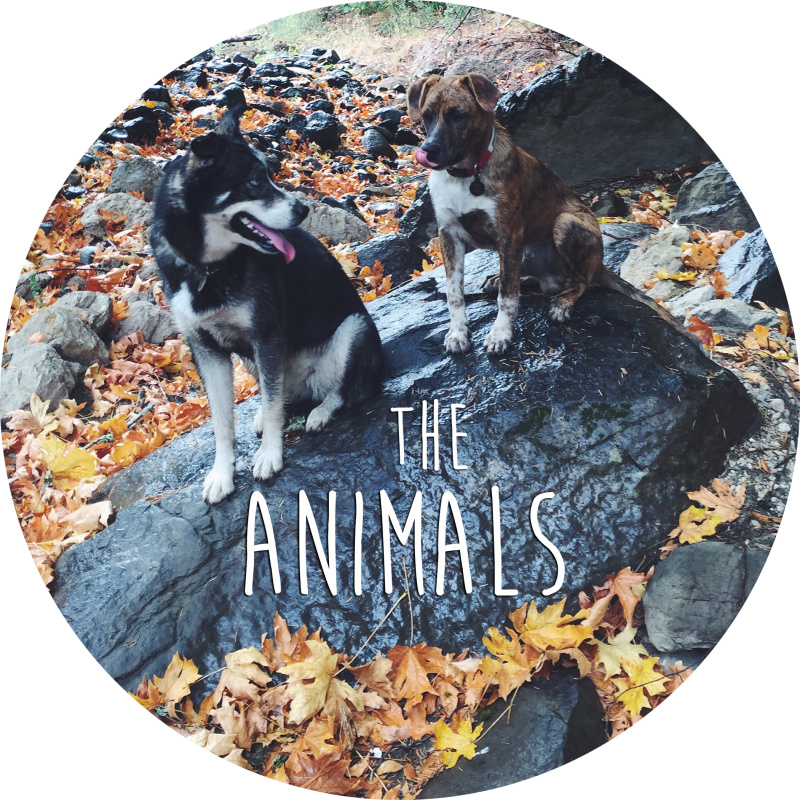Achieving Success by Asking for Less
A lot of times, when I'm helping a client teach their dog a new behavior, we discuss how important it is to break things down into small enough increments to make success possible and easy. In the dog training world, we call this "splitting criteria" - in other words, splitting up the behavior into small pieces that the dog can easily accomplish, to avoid frustration, build their confidence, and increase their willingness to keep working and learning.
I'll give you a real life example — oftentimes, I see dog owners work on a stay and get a pretty reliable stay if they are facing the dog. As soon as they turn their back to walk away, their dog breaks the stay. They want to build distance, so they remain facing the dog, sometimes slowly creeping backwards while repeating, "Stay... stay..." It's actually quite a leap for a dog to go from holding their stay while their person is looking at them, stationary, to holding a stay as the person turns their back and walks away, especially when our dogs are used to being rewarded for giving us attention and eye contact. So I have my clients break the distraction of "turning and walking away" into little micro pieces. We start by cueing the stay, then moving one foot back, marking and reinforcing. Then cueing the stay, moving one foot back, and shifting the weight to that foot, marking, and reinforcing. Then perhaps we'll start to add in a slight pivot of the body, increasing the angle until the handler is able to turn all their back. Only once that is in place will we start to build on distance (walking away.)
This is a pretty easy concept for most people to grasp — it may not come naturally to spit criteria quite so finely, but most people understand it pretty quickly and are able to start applying this idea to their own training sessions. What I've started thinking about quite a bit lately, though, is how we can apply this same concept to ourselves.
I started thinking about this for myself, in the context of working with my reactive dog, Muchacho. I am a person that has some anxiety issues myself, so I began to dread taking him out or working with him, worried that we'd end up in a situation with an over the top reaction that would embarrass me and set him back, or worse, become dangerous (I always have physical control over my dogs and would never let them off leash in an unsafe situation, but unfortunately not everyone takes leash laws seriously, and even "friendly" dogs can change their tune when they rush up on a dog that responds by growling, barking, or lunging — because of this we've been in more than one situation where we've been rushed by an off leash dog and my dogs or myself have been injured.) So I decided to take a step back and think about how to make taking Mooch out really easy for myself.
I started by taking Mooch on short solo walks on the trails in the early mornings, when we were less likely to encounter as many dogs. By taking him out on his own, I was able to give him my full attention, work on effective counter conditioning, create the right amount of space to have success, etc. I kept those walks nice and short and easy. After each successful, reaction-free walk, I was bursting with pride for him, excited to come home and tell my husband how well he had done. Soon, I was looking forward to taking him out, and it's quite likely that my more relaxed body posture and handling made it easier for him to relax on our walks, too. As it got easier for me to take him out, my confidence grew. I became more comfortable taking him different places. I started experimenting with taking out both dogs at once again - not always (because we don't always want to continually increase our criteria, sometime we need to add in some easy reps!) but sometimes.
And as I created a deeper history of success for myself (and for Muchacho), the few moments we had that didn't go well were easier for me to process. Sure, we'll still have a freak out when an off leash dog runs up and barks at us — but that's okay! I know my dog, I know the progress he's made and how well he's been doing. I know that I've been consistently working with him, and that there are many situations in which we can be successful. I know that I've done everything I can to keep him safe, but sometimes there are variables I can't control. So I'm not upset. I'm not embarrassed. I'm able to respond to the situation quickly and without panic, and to recover quickly, without resorting to ineffectively punishing myself for not being perfect. Maybe next walk, I'll give myself another easy win, and build my confidence back up.
And that's what I encourage you to do with yourself. If you're dealing with challenging behaviors, whether that's reactivity or just an over the top exuberant puppy, give yourself permission to make things easy for yourself (and for your dog.) You don't have to push yourself hard every single day. Create a plan, think about how you can create some really easy wins for you and your dog, so that you look forward to working together. You are more likely to continue to work with your dog if you enjoy yourself, so make it easy, and then start building on your skill set as you have that nice foundation of confidence.








